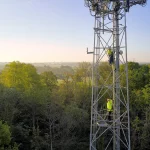BT Details its Superfast Broadband ISP Roll Out Plan for Cumbria UK
The joint BT and Cumbria (England) project, which is seeking to ensure that more than 93% of local people can access a superfast broadband service by the end of 2015 (the last 7% have been promised speeds of at least 2Mbps), has today released more details about their £50.8m plan and targets.
The Connecting Cumbria contract, which was effectively confirmed two months ago but only signed today at Ullswater, will see BT contribute £15m, the BDUK office will hand over £17.1m and £13.7m is to come from the European Regional Development Fund (ERDF). A further £5m will also arrive via the Performance Reward Grant (PRG) from all councils in Cumbria. Separately £2.5m is to come from ERDF and PRG to help advertise the new services.
Advertisement
BTOpenreach is now expected to begin work on the ground, with telecoms engineers surveying locations around the county and analysing the best way to roll out the network. This stage should be completed within 3 months and the full Cumbrian roll-out plan will then be announced during the spring of 2013.
Cllr Elizabeth Mallinson said:
“Although we’re still awaiting the final green light from Government, signing this contract is a clear message that Cumbria is ready for action. We are really pleased with the significant investment that is going into superfast broadband infrastructure in Cumbria which includes funding from both the public and private sectors.
We’re all desperately eager to roll our sleeves up and begin the task of actually delivering superfast broadband to people who simply would not have got it without the intervention of the government and county council. We have a tremendously exciting three years ahead of us, but I would ask people to be patient and allow us to deliver this huge programme in a strategic way which is in the best interests of the county as a whole.”
Bill Murphy, Managing Director of BT NGA, added:
“The project is incredibly important for Cumbria and BT is proud to be a part of it. Cumbria’s scattered population combined with its comparatively large size and challenging geography, means that small business plays a pivotal role in the county’s economy and the rollout of fibre broadband will act as an economic driver for those rural businesses.
The statistics show that in Cumbria, something like 7,000 businesses operate from villages, hamlets and isolated properties, which is why BT is committed to helping push fibre to those that are hardest to reach, offering a helping hand to the small community projects where residents are helping to build their own superfast connections.”
As usual BT will use its dominant up to 80Mbps capable FTTC technology for most of the effort, although “certain areas” can expect to benefit from its “ultra-fast” fibre optic FTTP technology that offers speeds of up to 330Mbps. It’s worth pointing out that FTTC lines will soon be able to order FTTP-On-Demand (spring 2013), although the installation for that is expected to be colossally expensive.
According to Ofcom, Cumbria’s average internet download “sync” speed is currently 7.1Mbps and 18.8% of the local population receive less than 2Mbps (Megabits per second).
Mark is a professional technology writer, IT consultant and computer engineer from Dorset (England), he also founded ISPreview in 1999 and enjoys analysing the latest telecoms and broadband developments. Find me on X (Twitter), Mastodon, Facebook, BlueSky, Threads.net and Linkedin.
« BT to Secure Contract for the UK Borders Broadband Project

















































Comments are closed